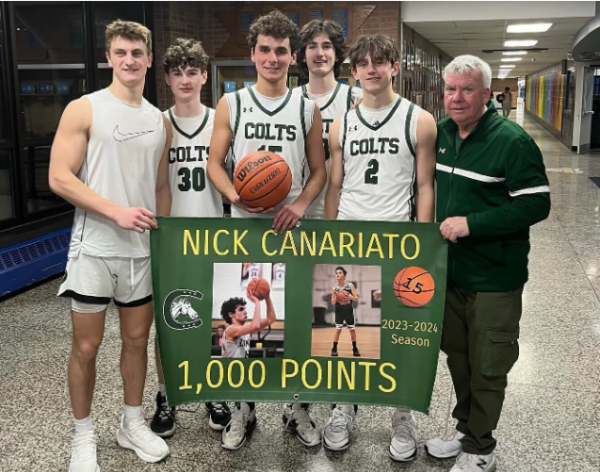Top 10 Things to Know About the New Governor of New Jersey
April 22, 2018
Although politics continue to stay relevant in media, nationwide turmoil can distract from state and local government. On Jan. 16, Phil Murphy was sworn in as Governor of New Jersey. The previous governor, Chris Christie, notably ran in the 2016 presidential election. Murphy, however, has stayed under the radar much more than Christie. To understand Murphy’s background and political views, here are the top 10 things to know about New Jersey’s new governor.
10. Phil Murphy was born in Needham, Mass.
Though not a New Jersey native, Murphy grew up in a state socially and financially similar to New Jersey. His family was considered lower middle class, and he started working at the young age of 13.
9. He attended Harvard University
After growing up on the outskirts of Boston, Murphy received an undergraduate degree in economics from Harvard and later went on to complete graduate school at the Wharton School of Business.
8. Murphy spent time working for Goldman Sachs
From 1982 to 2006, Phil Murphy worked at investment banking company, Goldman Sachs, where he worked his way up from a summer associate to the president of the Asian division of the company.
7. He was a former U.S. ambassador to Germany
Under the Obama administration, Murphy handled the majority of American-German relations. This heavily translated to introducing German children to American culture.
6. He served as the National Finance Chair of the Democratic National Committee
From 2006 to 2009, Murphy served as chairman of finances on the DNC. Because of his history working at Goldman Sachs, he is a notable financial figure in politics. Despite stereotypes of esteemed bankers’ views being conservative, Murphy’s views are liberal.
The top five most crucial things to know about Phil Murphy, by far, are the policies he has proposed while in office.
5. State Bank
Under this proposal, large Wall Street firms, such as Goldman Sachs, would not provide loans to college students or residents of New Jersey. Instead, one large state bank would be in charge of securing loans. In theory, a state bank would mainly invest its money locally, therefore benefiting small business owners.
4. Pensions
Phil Murphy has proposed a revival of the New Jersey pension system but has not yet disclosed a game plan.
3. Marijuana
Following alongside the changes in other states, the governor of New Jersey supports the legalization of marijuana in New Jersey.
2. Minimum Wage
Murphy has suggested that the minimum wage be raised from $8.60 to $15 an hour. He is also supportive of guaranteed paid sick days.
1. Affordable Housing
Most relevantly, Phil Murphy has openly proposed using smart investments to create affordable housing without having to build new structures in residential areas. This plan would make use of empty pre-existing residential space, therefore, alleviating the cost of building new affordable housing from the taxpayer’s wallet.














